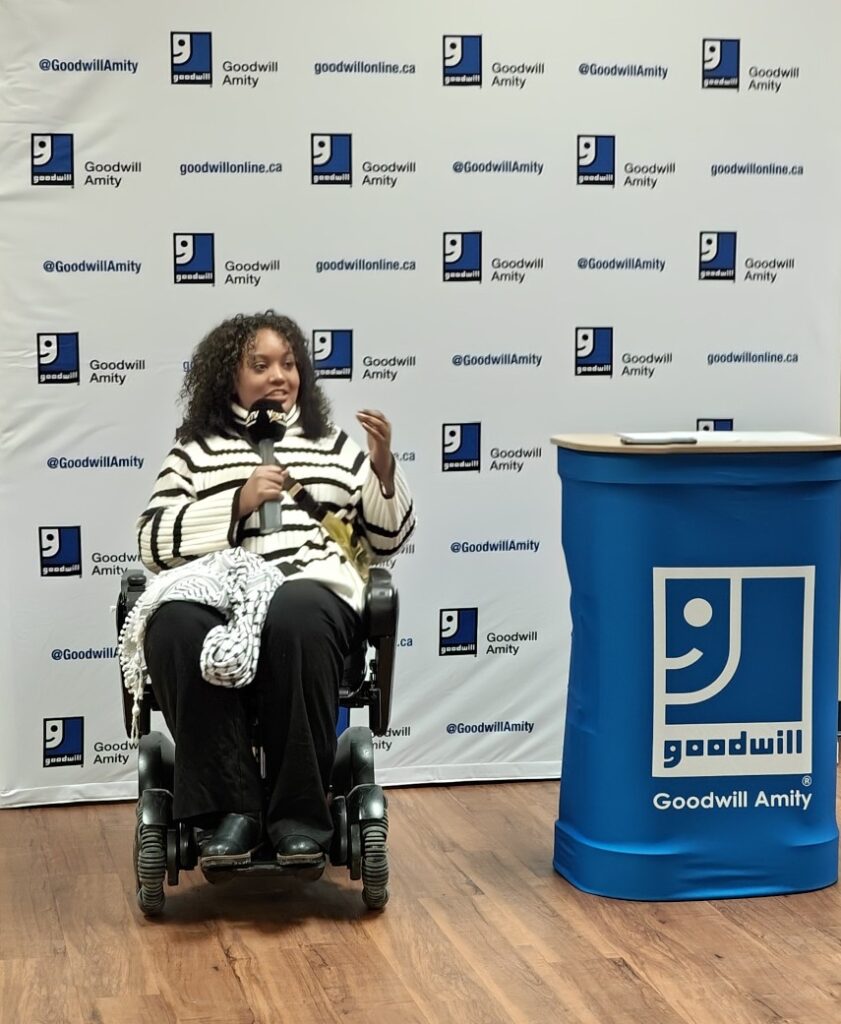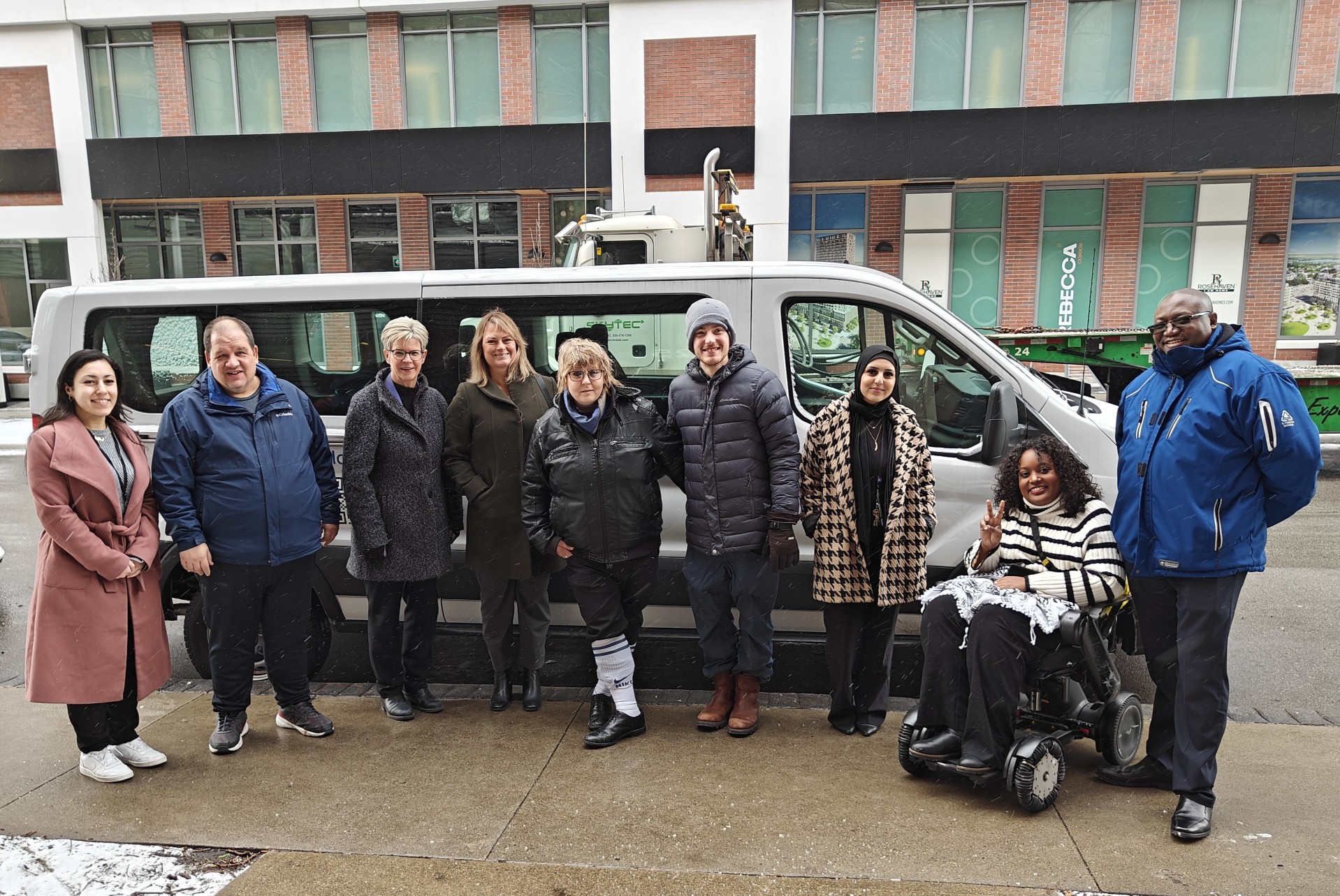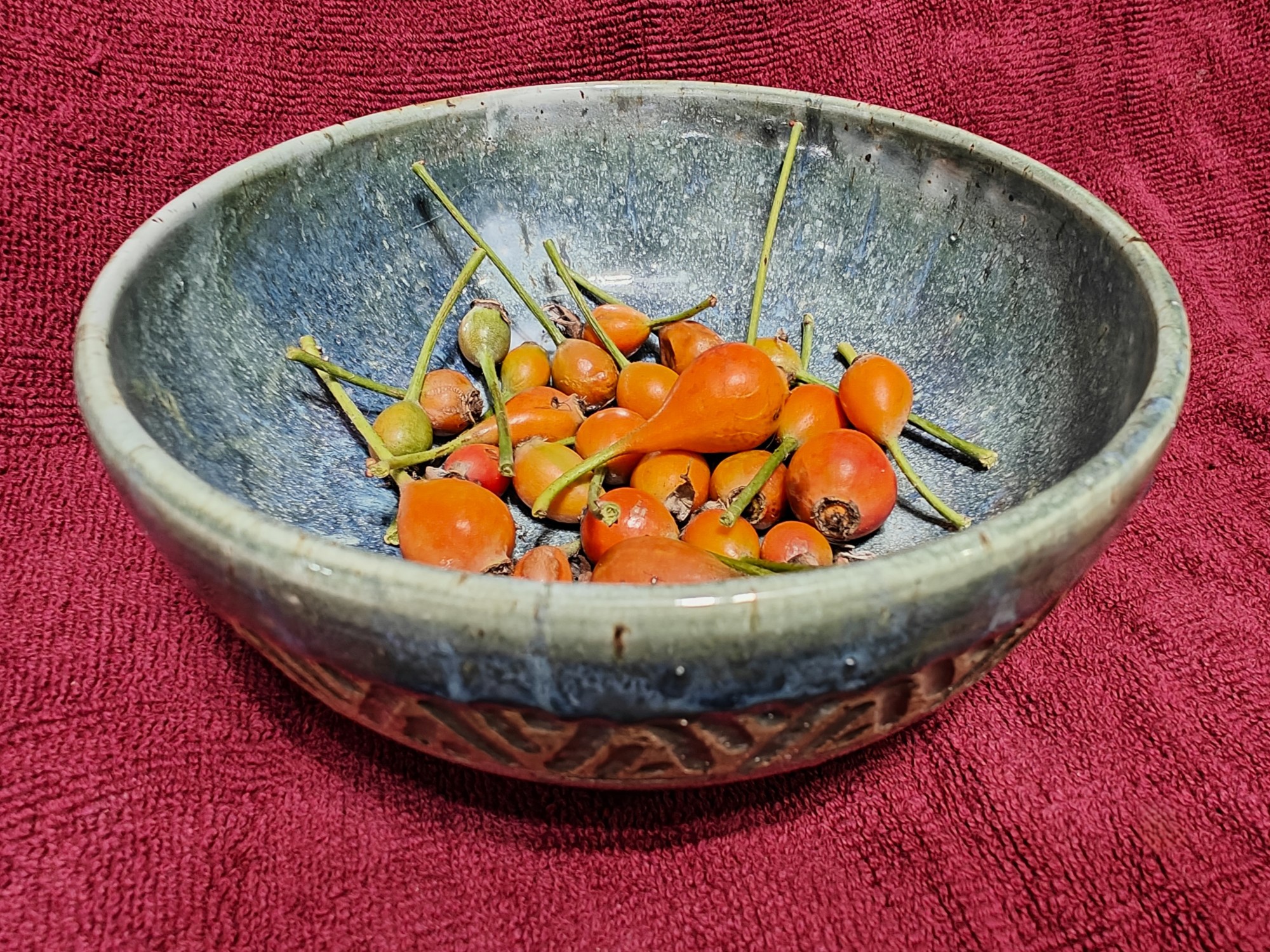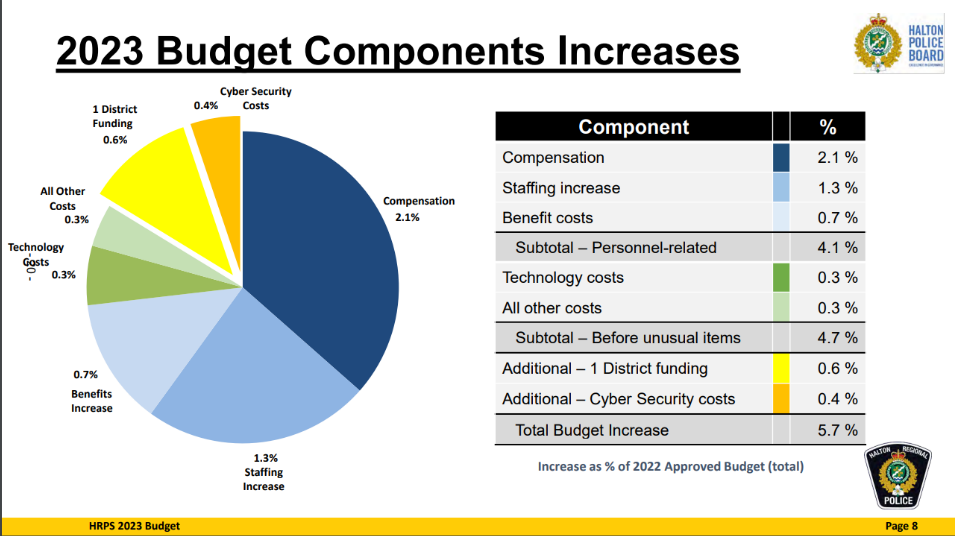Yesterday, Goodwill Amity Hamilton/Halton celebrated the funding received from an Ontario Trillium Foundation grant, used to purchase a new passenger van that will take participants in their Transitional Employment and Mentoring (T.E.A.M.) program from Hamilton to Goodwill Amity’s Oakville thrift store for training and real-world experience. The van will also be used to transport meals prepared in Goodwill Amity’s commercial café to businesses and agencies who support those in the community experiencing food insecurity.
Sarah Jama, Independent MPP for Hamilton Centre, spoke to both thank the Goodwill Amity team for their work and to state that the $65,000 Capital grant from the Ontario Trillium Foundation was not sufficient. “Thank you for continuing to hold the frontlines down,” Jama said. “We’re not giving you enough. You deserve more.”
Kelly Duffin, CEO of Goodwill Amity, noted that the passenger van will allow the organization to further their mission to “change lives and strengthen communities through the power of work.” Duffin called work “the great enabler,” noting that employment and income are the top two social determinants of health, meaning that with higher income and better working conditions, health outcomes are better.

To that end, the T.E.A.M. program serves people with disabilities, helping them gain marketable skills and workplace experiences, with the aim of getting participants into sustainable employment. Some participants gain experience at Stairways Café within the Goodwill Amity in Hamilton, doing customer service or working in the back, preparing food to sell in-house or as mentioned above, to deliver to local agencies to help feed people needing a meal. Other participants will now be able to work in the Oakville thrift store, where Goodwill will further assess their individual strengths, be it working with customers or hanging up clothing.
Before even getting that hands-on experience, though, there was already been an assessment as part of the T.E.A.M. intake process, says VP of Employment Services Tracy Cunning, to identify where the individual will be most successful. For some participants, that might mean a volunteer position; for others, work; others might be best suited for day programs.
For those in the employment stream, the aim is sustainable employment. Goodwill Amity has long-standing relationships with many employers, and also works to build new relationships in order to help their participants, from those in the T.E.A.M. program to newcomers to Canada or people who have lost a long-term job, find a job that fits both employee and employer.
Cunning notes that for employers new to Goodwill Amity, it can sometimes take a bit of persuasion to convince them to take on an employee with a disability, but their concerns are largely based on misconceptions. The main fear is often around the cost of accommodations for a disabled employee, but, says Cunning, there is mostly no cost — much of the time, an understanding of the disabled employee’s challenges is what is required, to adjust scheduling as needed, for instance.
She and Jacquie Daniel, who works in People and Culture at Goodwill, both emphasized the importance of using a strength-based perspective in employment support for people with disabilities. Cunning says that studies have shown that people with disabilities tend to stay longer with an employer than the non-disabled, which is to the benefit of the employer. Daniel adds, “People often see someone as their disability rather than as a person. But if we can get over that, they can see their strengths.” And playing to people’s strengths allows for long-lasting employment opportunities. After all, Daniel says, “We all have barriers” of some kind.
Goodwill program participants Ryan, Sean, and Claudia offered good proof of the approach. Sean says that he enjoys his time in “the workshop, downstairs.” Ryan’s face lit up when he said that he was training for his new job in the fall, which he is very excited about, though the exact position is not yet lined up.
The passenger van will allow around 35 T.E.A.M. participants per year to be transported to and from the Oakville store for that all-important work experience, says Cunning. Duffin says that they’ve been “dreaming of this van” for six years, and staff and participants alike are clearly excited to see it come to fruition, to continue, as Duffin says, giving people “a hand up and a chance.”





